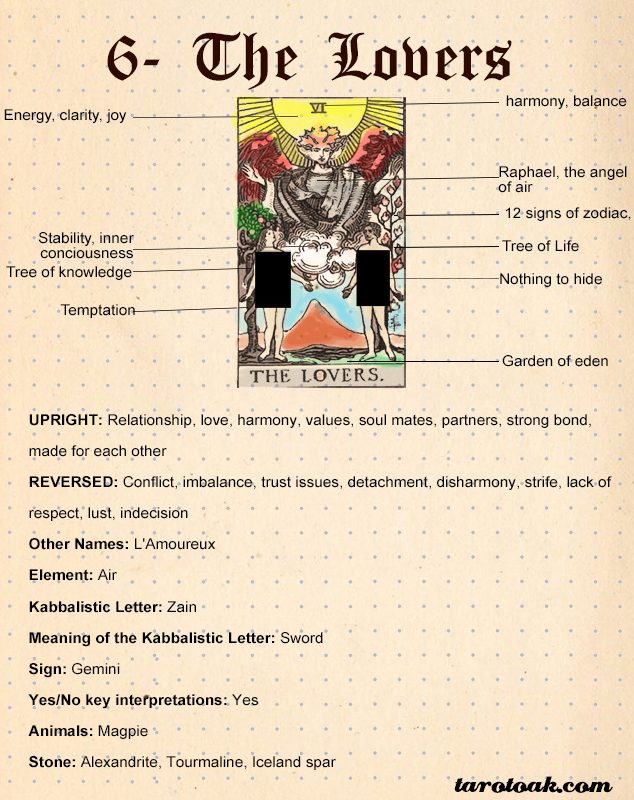The Lovers tarot card, nestled within the Major Arcana, is often shrouded in profound significance, particularly when examined through the lens of Christian perspective. Its depiction typically showcases a harmonious couple, often representing choices, relationships, and moral dilemmas. This card resonates with themes of love, unity, and the delicate balance between the sacred and the profane. In a Christian context, the Lovers card offers a rich tapestry for exploration, illustrating complex notions of love, commitment, and spiritual guidance.
First and foremost, it is essential to appreciate the symbolic elements inherent in the Lovers card. The imagery commonly features two figures, often positioned beneath an angelic presence, which can be interpreted in Christian thought as a divine endorsement of love and partnership. This depiction suggests that true love is not merely a human experience but also a spiritual journey, grounded in divine providence.
In Christianity, love is a central tenet, emphasized throughout scripture. The Bible frequently extols the virtues of love, particularly in passages such as 1 Corinthians 13, which underscores love as patient, kind, and enduring. When applied to the Lovers card, this biblical notion of love harmonizes with the card’s meaning. This leads to the assertion that love, in its purest form, resembles more than romantic or physical attraction—it transcends to embody charity, compassion, and mutual respect between partners.
The concept of choice is another pivotal aspect of the Lovers card. Within Christian traditions, personal choices carry significant weight, dictating moral and ethical paths. The card often embodies a moment of decision that bears profound implications on not only individual lives but also the broader tapestry of their spiritual journey. This resonates with the idea presented in Deuteronomy 30:19, where individuals are urged to choose life and blessings rather than death and curses. When confronted with choices depicted in the Lovers card, individuals are beckoned to consider the ramifications those choices have on their own lives and the lives of others, encapsulating the essence of moral responsibility.
Moreover, the duality present in the Lovers card evokes the tension between the material and the spiritual realms. In Christianity, believers are often confronted with the necessity to balance earthly desires against spiritual obligations. Such a juxtaposition resonates with Galatians 5:17, which illustrates the conflict between the flesh and the Spirit. In recognizing this duality, practitioners are prompted to discern the motivations behind their choices, ensuring alignment with Christian values of love and righteousness. Herein lies an opportunity for introspection—an integral process in understanding how choices shape one’s spiritual identity and relationship with God.
The narrative of The Lovers card also invites consideration of the concept of covenant. In Christian theology, marriages are viewed as sacred covenants, reflective of Christ’s relationship with the Church. The mutual commitment illustrated in the Lovers card reinforces the idea that love extends beyond fleeting emotions into a profound dedication that mirrors divine love. The survival of love amid adversities serves as a testament to the strength of a covenant grounded in faith, trust, and mutual upliftment. The Christian marriage vows epitomize this sentiment, showcasing a promise to balance love with righteousness, a sentiment that can resonate deeply with those who encounter this card.
Furthermore, the card’s association with passion hints at the power of divine love and its potential to empower couples in their shared journey. This dimension is comparable to the love of Christ, which is portrayed as all-encompassing and transformative. For Christians, love is not limited to romantic relationships; transcendent love can also be expressed towards family, community, and even one’s adversaries. The Lovers card, accordingly, may serve as an invitation to embody and share such divine love within various spheres of life.
Yet, it is pivotal to scrutinize the challenges that may accompany the choices heralded by the Lovers card. Relationships can be fraught with complexities and trials, paralleling the struggles faced by couples in the biblical narrative. Resentment, betrayal, and separation often shadow the beauty of romance, illuminating the idea that love requires continual nurturing and sacrifice. Overcoming adversity, as depicted in biblical stories of love and sacrifice, encourages individuals to navigate through relational conflicts with grace and forgiveness, embodying the heart of Christian teaching.
In conclusion, the Lovers tarot card, when viewed through a Christian lens, reveals a multifaceted meaning entwined with themes of divine love, moral choices, and the sanctity of commitment. It calls for deep introspection on the nature of relationships and encourages individuals to navigate the complexities of love with guidance rooted in spiritual principles. The card’s imagery beckons to align one’s pursuits with the essence of love as articulated in scripture, merging the earthly with spiritual wisdom. Ultimately, the Lovers card serves as a reminder that the journey of love—be it romantic, familial, or communal—can lead to profound spiritual growth and a more profound connection with the divine. Embracing this perspective enriches the understanding of both love and the choices that define it, encouraging a life steeped in purpose, compassion, and faith.







Leave a Comment